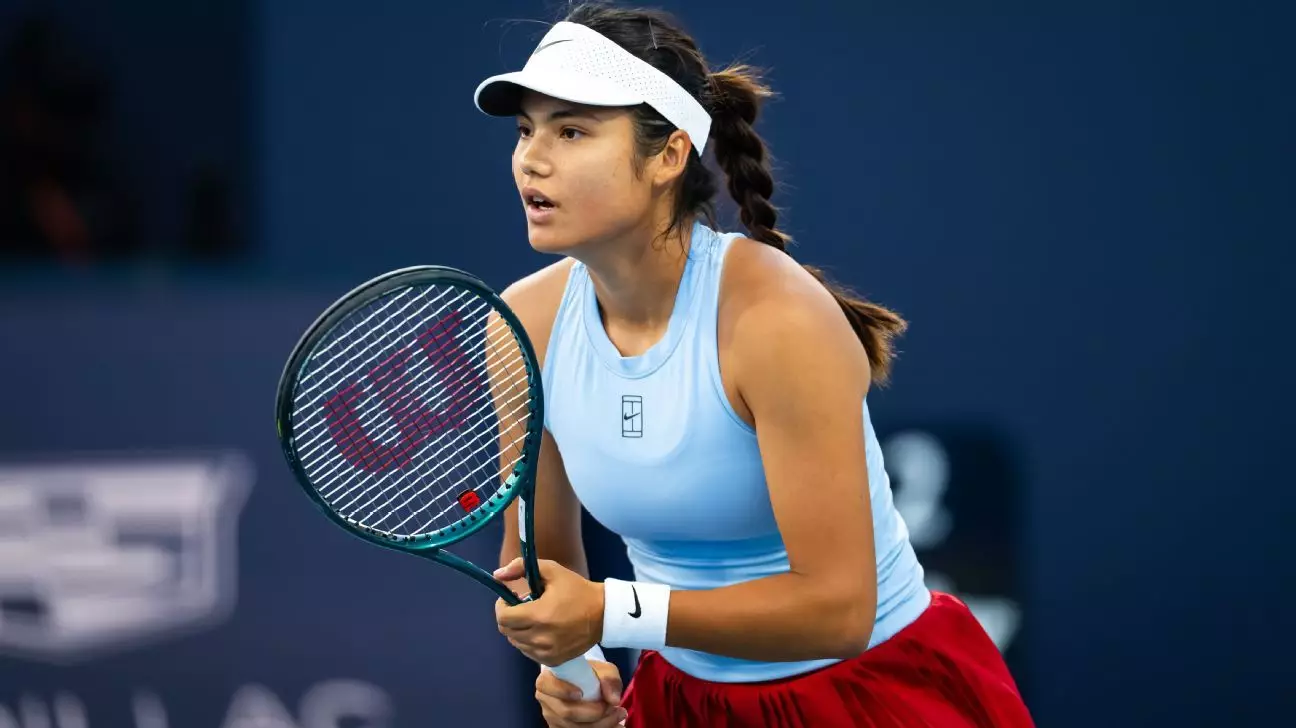Emma Raducanu is carving a distinctive path in her tennis career, and her latest collaboration with former player Mark Petchey illustrates her unconventional approach to coaching. Unlike the rigid structures that characterize many athlete-coach relationships, Raducanu has opted for a more informal partnership with Petchey. This decision likely stems from her past struggles to find a coaching style that complements her needs. The young athlete has faced an array of challenges, especially regarding form and fitness, leading her to reassess her training philosophy. She candidly admitted, “It’s pretty informal for now but is something that’s going really well.” This indicates a refreshing flexibility in her approach, where she places value on a relationship that encourages exploration rather than dictated methodologies.
The Importance of Rest and Recovery
Raducanu’s thoughtful decision to retreat from competitive play—such as her withdrawal from the Billie Jean King Cup qualifiers—demonstrates her growing awareness of her physical and mental well-being. By stepping back following her quarterfinal run in Miami, where fatigue and injury became evident, she is embodying a critical lesson for athletes: the value of rest. The idea that “less is more” resonates vividly with her present mindset. The former U.S. Open champion seems to be prioritizing the quality of her practice sessions over sheer volume, recognizing that intensity without recuperation can lead to burnout—an often-overlooked aspect in the quest for excellence.
A Focused Approach to Tennis
As Raducanu prepares to return for the Madrid Open, her mindset seems laser-focused on maximizing her performance. The essence of her training philosophy revolves around optimizing every minute on the court, ensuring that when she trains, she does so with purpose and intensity. She shared with Sky Sports, “It’s just making sure when I’m on the court I’m maxing out for X amount of time.” This pragmatic approach suggests a maturity beyond her years; by being selective with her training and competitive schedule, she appears poised to thrive in high-pressure situations without feeling overwhelmed.
Lessons from Experience
Raducanu’s reflections reveal deeper insights into the psyche of a young athlete navigating the often tumultuous world of professional sports. The struggle to maintain peak conditioning and performance while avoiding the pitfalls of overtraining is a delicate balance, one that can make or break an athlete’s career. Her admission of “overkilling it sometimes” mirrors a sentiment shared by many top competitors who face relentless demands both from themselves and external expectations. By understanding her limits and adopting a more measured approach, she is not only poised to enhance her game but also to influence the younger generation of players who may feel compelled to conform to traditional expectations of relentless pursuit.
In a landscape where the pressure to perform is unyielding, Raducanu’s willingness to adapt emphasizes the power of personal agency in crafting one’s journey through professional sports. Her ability to redefine success—prioritizing well-being while still hungry for achievement—signals an evolution in how athletes can sustain long and fruitful careers in high-stakes arenas.


Leave a Reply